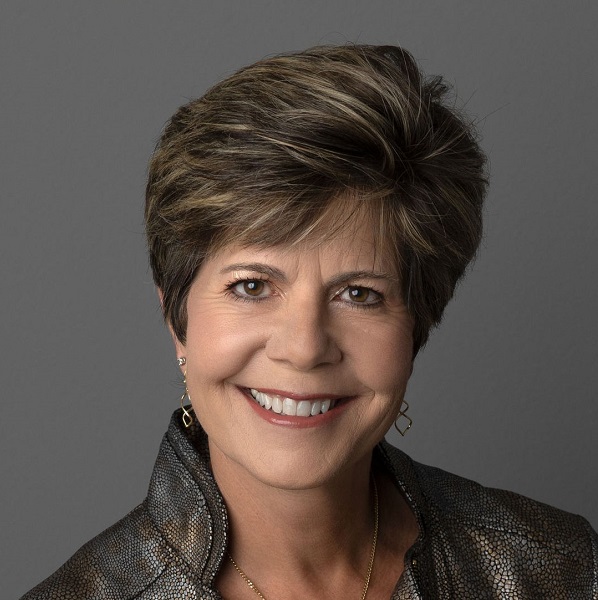Have you ever felt apologetic about an interaction you had with your kids? How often have you felt disappointed in yourself for the way you responded to them? One of the most practical approaches to living unapologetically is to live and engage consciously as often as possible. Doing so not only limits regret but it allows for confidence in how you live. Even as they test our nerves, our children regularly present us with opportunities for growth. One way of maximizing the potential for such an exchange is through Conscious Parenting—a practice that encourages us to mindfully engage with our children. It’s not for the faint of heart, and it’s far from easy, but the outcome is worth it for all involved. When our children thrive, so do we.
From lockdowns, homeschooling, and social distancing, life in the pandemic has radically altered our roles as parents. Yet, this moment has created an occasion for us to pause and evaluate how we wish to interact with our kids. From a clinical lens, I have observed how the pandemic has impacted the development of Executive Function skills in children. EF, as it’s referred to, is a set of cognitive skills used in regulating our emotions that include working memory, inhibitory control and flexible thinking. Cutting-edge work is being done in this field by Dr. Philip Zelazo (who happens to be my brother) and Dr. Stephanie Carlson out of the University of Minnesota. (Check out their research at the following site should you wish to explore this further.) Zelazo and Carlson describe EF as the “air traffic controller of the mind”, a useful metaphor for understanding its combined mechanisms.
For many children (and parents), the pandemic has necessitated an increase in stress tolerance and regulation. Yet, as parents, we have been asked to negotiate this without any training. Although most children are back at school, there are still many challenges unique to pandemic life. Not only do most children wear masks all day (which is hard for many of them), but their social interaction, which is a major process through which EF develops, has been completely altered. How many of you are doing sleepovers or birthday parties? Remember when the bowling alley or trampoline park was a legitimate option for a birthday party? Things are certainly different now, but Conscious Parenting can help.
I get it. The thought of reprogramming our parenting may feel overwhelming, but I assure you, the practice can lead to stress reduction for everyone in the family. Conscious Parenting requires forgiveness for both our children and ourselves. Through it, we not only parent our children, but we can re-parent ourselves. In being fully present with intention in every moment we can, we give ourselves what we may not have gotten growing up. By being present, mindful, and conscious in our interactions with our kids, we have an opportunity to support their developing EF. Conscious Parenting allows us to mirror how to regulate emotions, self-soothe, and think ahead about the outcome of our actions and choices.
When you speak to your children, listen to the words your use. Are you demonstrating good EF? Are you screaming, annoyed, frustrated? It is totally okay if you feel these things—you will! It is part of being a parent and being human, but how you manage those emotions within yourself is crucial modelling. Each time your emotions get activated presents an opportunity to teach your kids how to regulate emotional frustration. Linked to brain skills that lead to academic success,
EF also leads to feeling actualized on every level. EF is perhaps the most important set of skills a person can develop. Equipped with solid EF skills, an individual has the tools to negotiate whatever arises successfully.
Let’s explore an example of Conscious Parenting at work. Imagine you have a third-grader who is very slow to get ready in the morning. He or she may seem to ignore the need to make the school bus, thereby ignoring your need to be on time for work. As time ticks, your child dallies while still in PJs, with teeth unbrushed, and bag unpacked. Sound familiar? Anxiety begins to mount. But, just as it does, STOP. Take a deep breath. Catch yourself. How do you want this to go? You know from experience that if you yell, your child will only resist more and delay things further. In Conscious Parenting, try instead to calmly articulate what unfolds if they miss the bus both for you and work and for them and the school day. Check-in with yourself to see what you need to down-regulate. Is there any way that you can take the pressure off yourself? Can you readjust your own schedule by a few minutes? If so, it may help you let go of that pressure and let go of the anger at your child. It may look like rude and defiant behavior on their part, but it may be the result of impaired EF (this is not to say we encourage the behavior). By consciously managing your own EF, however, you demonstrate how your children can manage theirs.
Try shifting the focus away from “hurry up; we are running out of time” to being fully present from your less triggered state. Explain, for example, how by coming outside with you and waiting for the bus, the two of you can start planning what you will do after school or on the weekend. Choose a topic that helps your child focus. Maybe it is a discussion about a game they like or an activity they adore. As you do, start putting on your own coat and shoes to head out. Mirror the actions you want to see. With your own stress regulated, watch things begin to fall into place. Miraculously, your child gets ready to walk out with you, and you make the school bus.
Keep at it. It may take several tries, but this sort of interaction is at the core of Conscious Parenting. In so doing, you help your child, but you’re also helping yourself to live a life about which you feel confident. Being confident will facilitate a sense of equanimity and peace associated with living unapologetically.
*Inspired by the wisdom of the Sumerian Goddess Inanna, this blog is an invitation to live as she does, like an Unapologetic Heroine.
Seana Zelazo, LICSW is a psychotherapist, spiritual coach and intuitive channel committed to helping us live unapologetically, by restoring balance within and without through the wisdom of the Sumerian Goddess Inanna. Look for her upcoming book The Return of Inanna: The Unapologetic Heroine in 2022. seanazelazo.com








